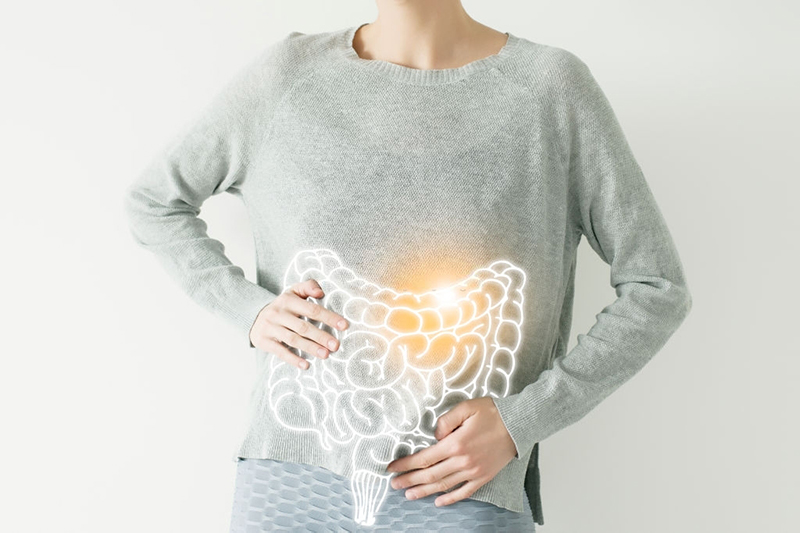What is the definition of constipation?
Constipation can have a variety of subjective connotations for different people. Any of the following symptoms can be reported:
Stool frequency has decreased (typically less than 3 stools passed per week)
Stool consistency (lumpy or firm)
Passing stool with difficulty or straining
Feelings of an incomplete evacuation
Constipation is a kind of Irritable Bowel Syndrome that causes abdominal pain or cramps when defecating. probioticseverything.comprobiotic that helps women poop
Constipation is caused by a variety of factors.
Poor dietary habits, including a lack of fiber and plant-based foods.
Inadequate water intake or dehydration
Iron supplements and opioid analgesics are examples of medications.
Pregnancy
Inactivity and a sedentary lifestyle
Stress Abnormal gastrointestinal tract functioning/structural abnormalities – pelvic floor dysfunction, mass blockage
Hypothyroidism, Parkinson’s disease, and other medical problems are examples of secondary causes. probioticseverything.comprobiotic that helps women poop
How to Get Rid of Constipation
Some people have to deal with constipation on a daily basis. Dietary fiber supplements, such as psyllium husks or flax seeds, over-the-counter laxatives, such as bisacodyl or senna-based stimulant laxatives, and prescription medication, such as lactulose or lubiprostone, are all common therapeutic alternatives. probioticseverything.comprobiotic that helps women poop
Almost half of patients with chronic constipation are dissatisfied with laxatives and fiber supplements, as well as other traditional methods of increasing stool frequency. Constipation was considered to have a substantial impact on the quality of life by 52 percent of individuals polled in the same population-based survey. As a result, many people suffering from this condition are turning for alternative treatments to help them manage their symptoms, and probiotics are becoming a more popular option. probioticseverything.comprobiotic that helps women poop
Constipation and the gut microbiome
The gut microbiome is a collection of trillions of microorganisms that live in the gut. Our sister site, the Probiotics Learning Lab, has further information about your gut microbiome. These germs coexist in perfect harmony, with a healthy balance of beneficial and harmful bacteria. Certain lifestyle variables, however, might upset this equilibrium, resulting in dysbiosis (find out more about dysbiosis on our sister site, the Probiotics Learning Lab: What is dysbiosis?). Constipation is frequently associated with dysbiosis. Using a probiotic to correct this imbalance can assist to restore normal bowel function and increase stool frequency. probioticseverything.comprobiotic that helps women poop
Constipation and probiotics
Probiotics might be helpful in relieving occasional constipation, but choosing the right one can be difficult. Here, we’ll try to clear up some of the myths around probiotics and show you how to get the most out of your friendly bacteria. Because Bifidobacteria and Lactobacillus species make up the bulk of bacteria in the large intestine, it’s no surprise that probiotics containing specific strains from these genera are thought to be the most effective in relieving constipation. probioticseverything.comprobiotic that helps women poop
Although the actual processes of probiotics’ ability to relieve occasional constipation have yet to be thoroughly confirmed, there are a few theories:
SCFAs are manufactured (Short Chain Fatty Acids). Both Bifidobacteria and Lactobacilli create SCFAs as a result of bacterial fermentation of carbohydrates in the stomach. SCFAs are thought to improve colonic motility by stimulating neural receptors in the smooth muscle of the gut wall, which causes peristalsis. They’ve also been linked to an increase in serotonin levels in the colon, which is an excitatory neurotransmitter that can also help with peristalsis. probioticseverything.comprobiotic that helps women poop
Lactic acid and SCFA synthesis by Lactobacillus and Bifidobacteria species increased, lowering intestinal pH. Peristalsis is stimulated and colonic transit time is reduced when the acidity of the gut luminal contents is increased. probioticseverything.comprobiotic that helps women poop
Increased bile salt metabolism by Bifidobacteria and Lactobacilli strains in the gut induces peristalsis by increasing the amount of deconjugated bile salts in the gut, which can stimulate colonic motility. probioticseverything.com

